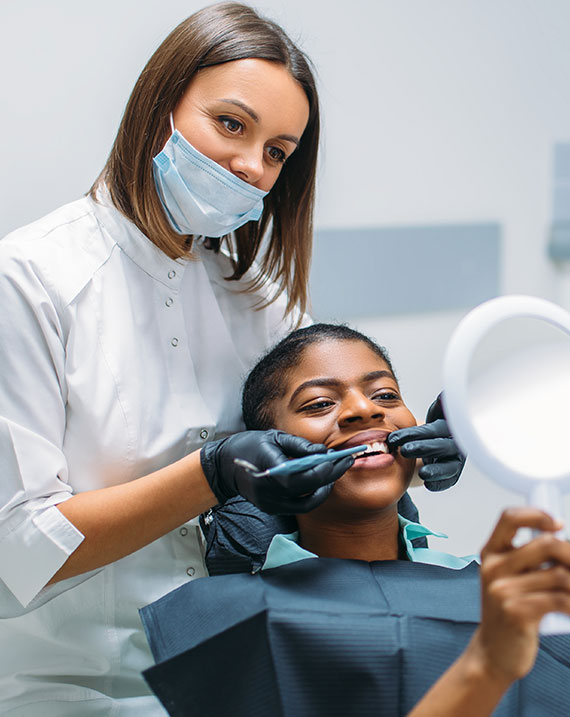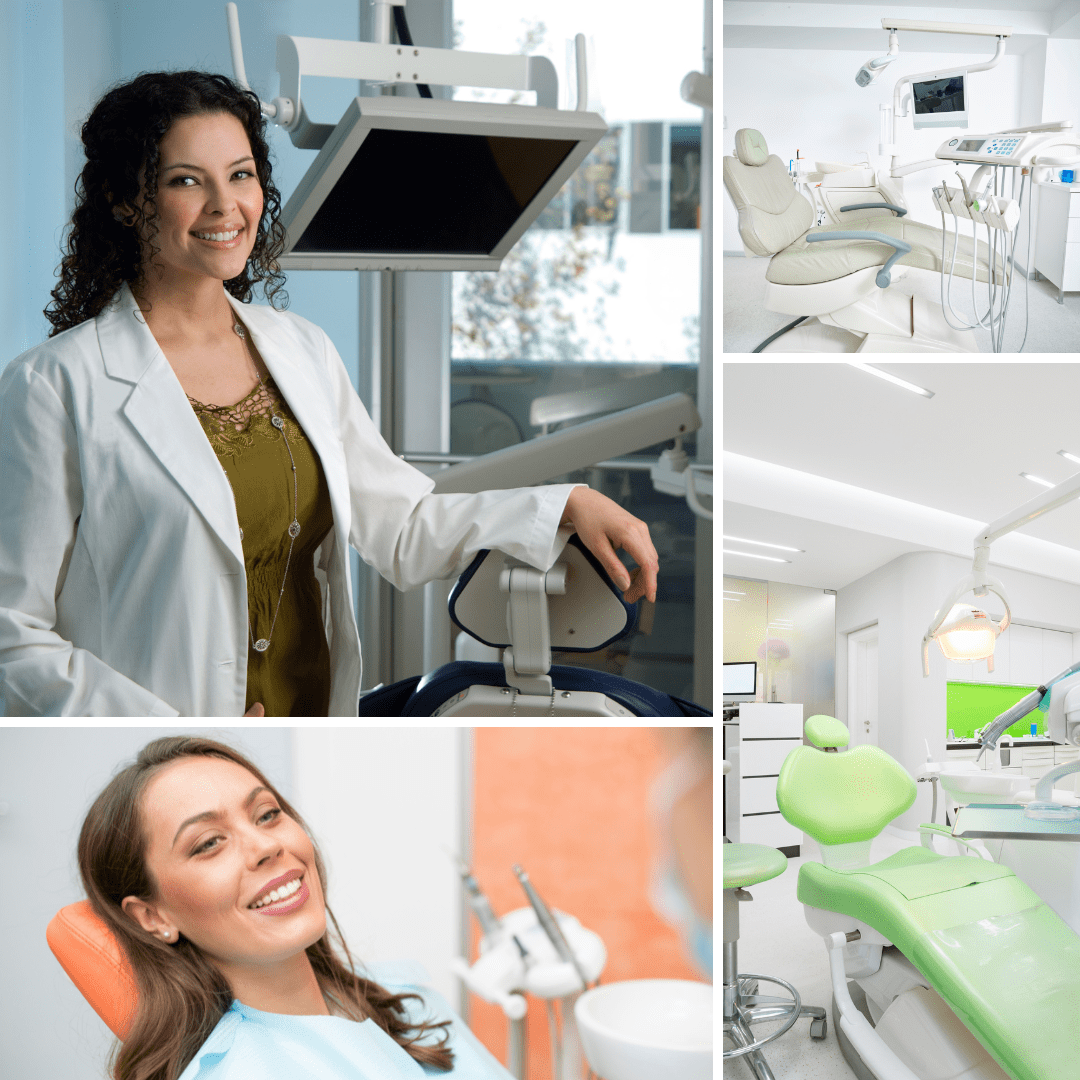- 1717 W Northern Ave, Suite 109, Phoenix, AZ 85021
- dentxdental@outlook.com
Proven treatments. Natural results. See for yourself…
Dentures are basically removable false teeth. Dentures can be taken out and put back into the mouth. They are an appliance or prosthesis for people missing one, many or all their teeth. Dentures replace missing teeth and in turn help patients with their eating and speech. Dentures help keep the remaining teeth in position and improve patients’ self-confidence.
The answer is “yes” . The dentures placed on the same day all teeth are removed are called immediate or temporary dentures. Process for immediate denture:
Disadvantages for immediate dentures:
It adds to the cost as patients have to pay for two set of dentures.
Patients experience discomfort as immediate dentures loosen overtime as gums heal and shrink.
Requires multiple dental appointments especially after receiving immediate dentures for refitting as gums heal and shrink.
There are two types of dentures: complete and partial. Complete dentures replace all the teeth and fit over entire upper or lower jaw. Partial denture replaces a single tooth or few teeth.
Sleeping with your dentures in can lead to an increased risk of infection and gum disease. It’s best to take dentures out at night so that the gums can rest. Dentures put pressure on gums and the bone under it. This process results in gradual decease in bone volume and density. This bone loss is accelerated if dentures are worn day and night. When there is not enough bone to support the denture, they become loose and fallout easily. This will in turn cause less support for face and chin and will change the facial appearance.
The undersurface of denture can become breeding ground for oral bacteria and fungi. This will cause odor and disease.
Wearing dentures during night is more likely to have positive culture for thrush, an oral yeast infection.
Wearing dentures during night decreases salivary flow and may result in a condition called denture stomatitis. This condition is more common under upper complete denture. The palate becomes, red, inflamed, and infected with yeast. Denture stomatitis is treated by leaving dentures out at night and cleaning them meticulously. Fungal infection is treated with anti-fungal medication.
A good oral hygiene routine for denture-wearers should include the following steps:
A denture will last from 5 to 7 years. However, proper healthcare can even extend it to last longer for almost ten years.
Below is a list of example signaling that a denture may need to be replaced.
If redness or Inflammation exists beneath the denture bases
When adhesives must be used more than once daily or when the dentures will not remain in place by themselves.
If the patient cannot wear the removable prostheses.
If the denture has degraded sufficiently so that it is not stable in the mouth.
The denture no longer matches the other dentition, no longer fits well or if the denture itself or the prosthetic teeth are discolored, cracked, broken, or missing.
If there is a change in the teeth supporting a removable partial or overdenture.
If it has been more than 5 years since the denture was fabricated.
Eating with dentures isn't like eating with your regular teeth. Chewing on only one side of your mouth can loosen your dentures and cause them to slip. Be patient and give a few weeks to get adjusted to the new dentures.
When learning to eat with dentures, it may be easier if you:
Start with soft, non-sticky food.
Cut your food into small pieces.
Chew slowly using both sides of your mouth.

Braces are a popular orthodontic treatment used to correct various teeth alignment issues. The treatment involves applying a set of brackets to the teeth, connected by a wire, to exert gentle pressure on them and gradually move them into the desired position. Braces are a versatile and effective treatment option for people of all ages, from children to adults.
One of the most common reasons for getting braces is to correct crooked or misaligned teeth. Crooked teeth can affect the appearance of your smile and make it harder to clean your teeth properly, leading to a higher risk of cavities and gum disease. Braces can straighten your teeth and improve your oral health, making it easier to maintain a healthy smile.
Are you dissatisfied with the appearance and impact of missing teeth or your current denture? Dr. Shilpa firmly believes that dentistry should enhance both your well-being and quality of life. At DentX Dental, we strive to empower our patients with the advantages of exceptional oral health and a stunning smile. Dentures could be the ideal solution for you.
Our dedicated Tucson dentures dentist is devoted to providing you with a smile that is not only healthy but also brings you joy and fulfillment in your everyday life.
Experience dental care at its finest—everything you deserve for optimal oral health and a radiant smile.
Orthodontic treatment aims to achieve a proper bite, where straight teeth fit well with those in the opposite jaw, facilitating biting, chewing and speaking. Such treatment can enhance dental health and boost self-esteem.
Orthodontics is typically an integral part of an overall dental health plan, and with proper care, including orthodontic treatment when necessary, teeth can last a lifetime.
It is crucial to have children and teenagers evaluated early, while their growth is ongoing, as early treatment may yield results that may not be attainable once facial and jaw development have ceased.
Maintaining a healthy bite is equally vital for adults, even at age 65, as it is for teenagers at 15. Despite no longer growing, adults can still benefit from orthodontic treatment and enjoy improved dental, physical, and emotional health. Age is not a factor in orthodontic treatment, and healthy teeth can be shifted at any age, making it a wise investment.









Take the first step towards a healthier and brighter smile by reaching out to us without delay.